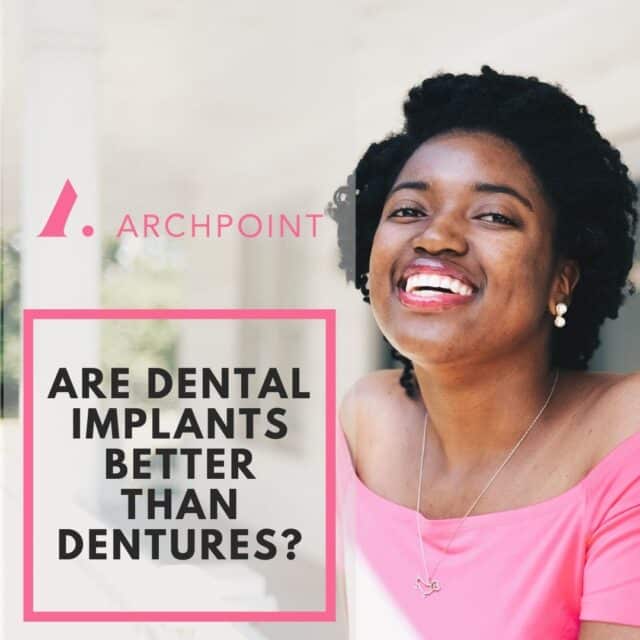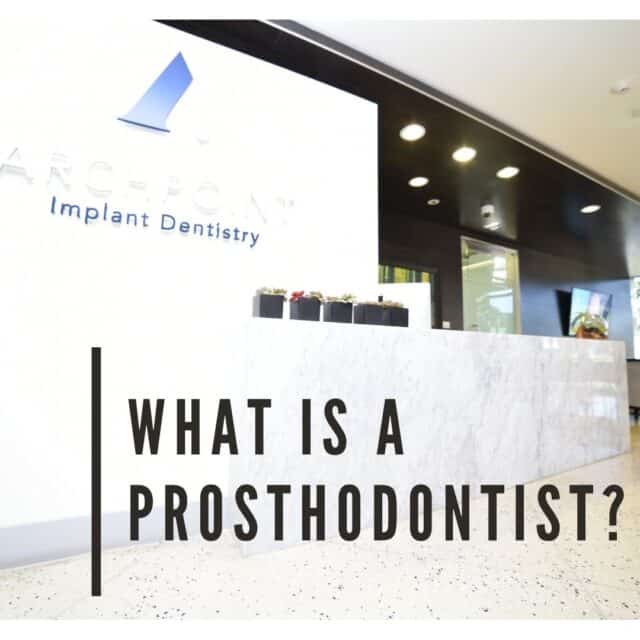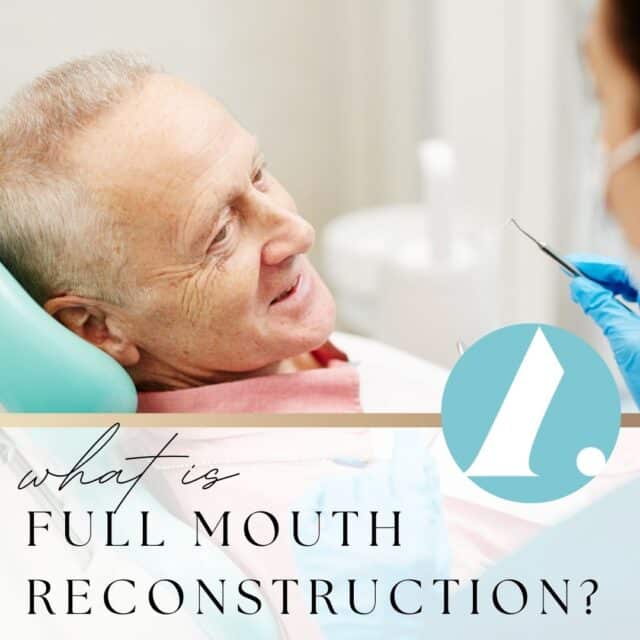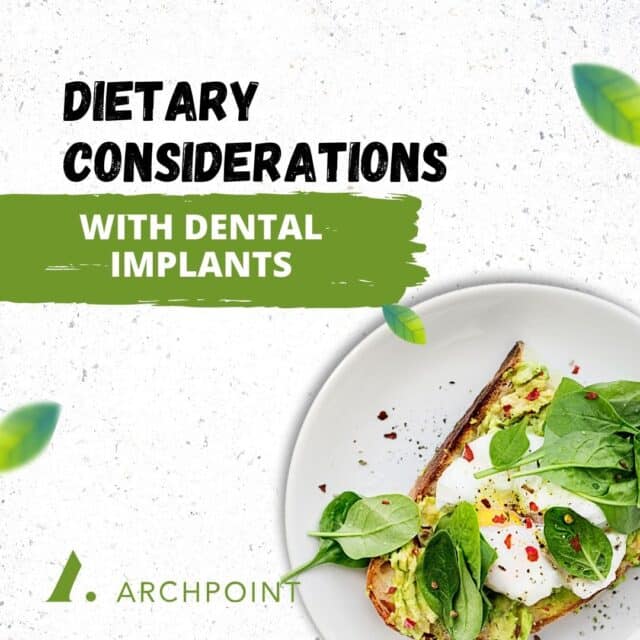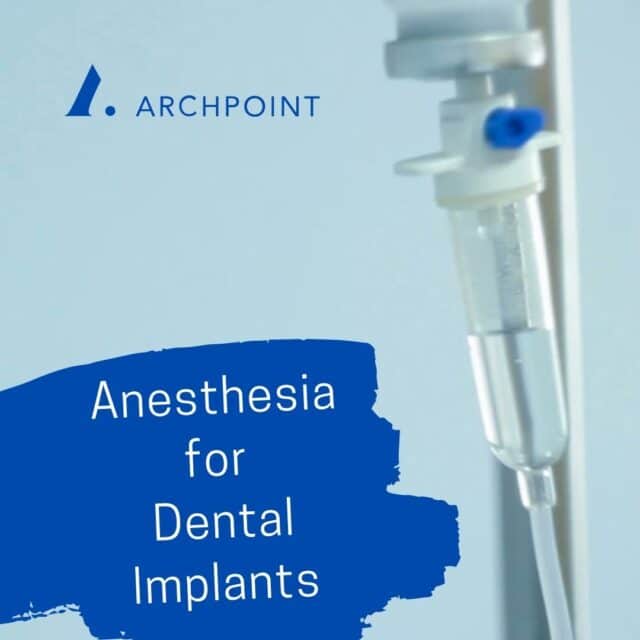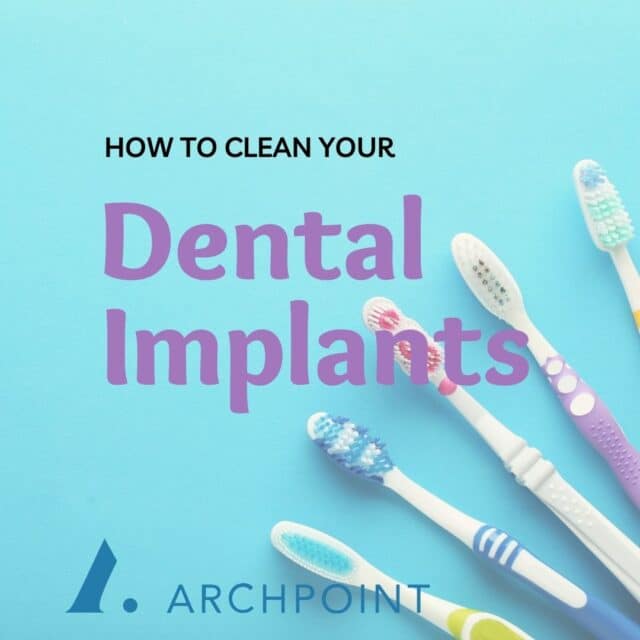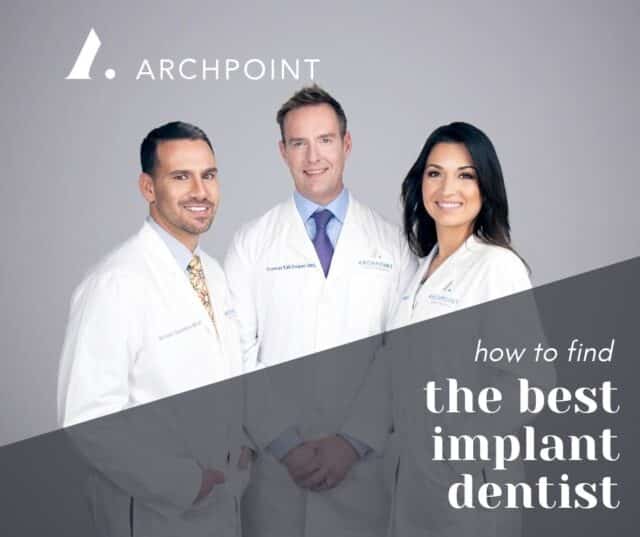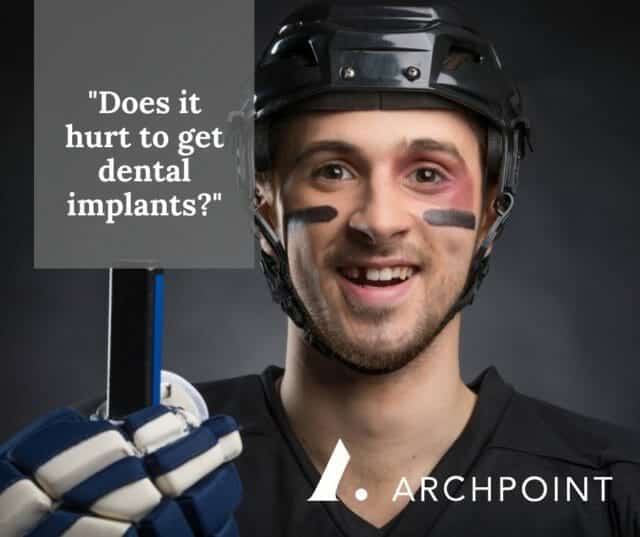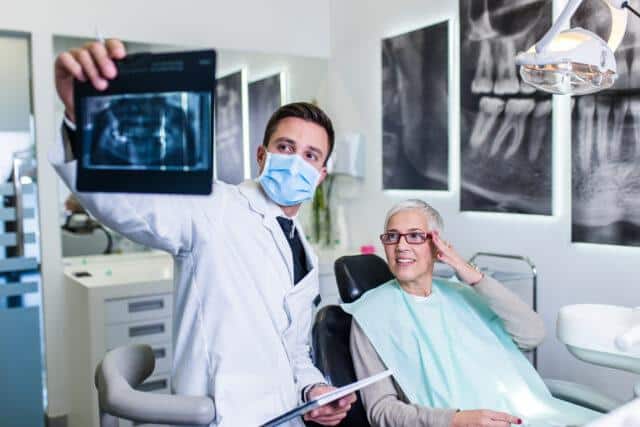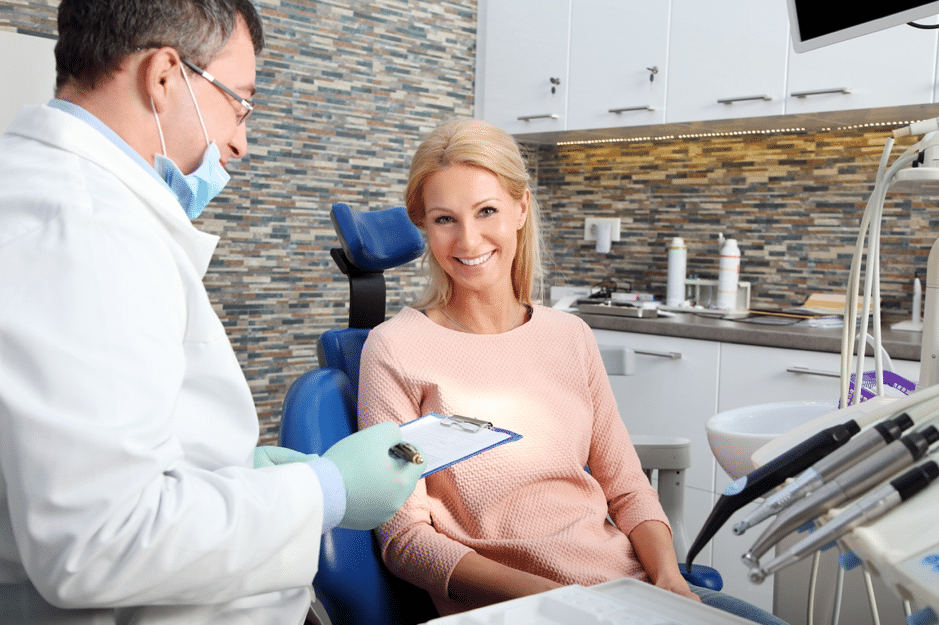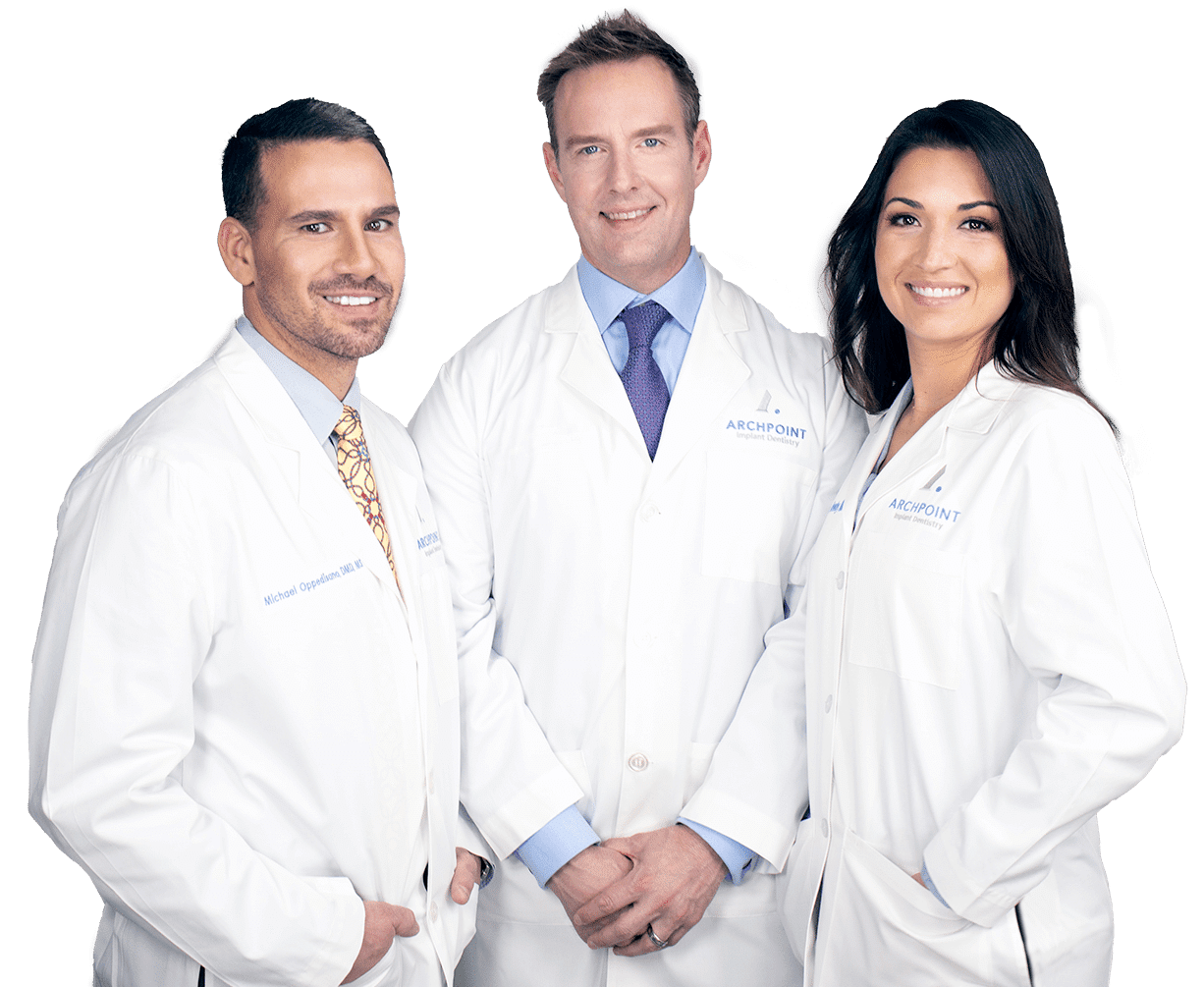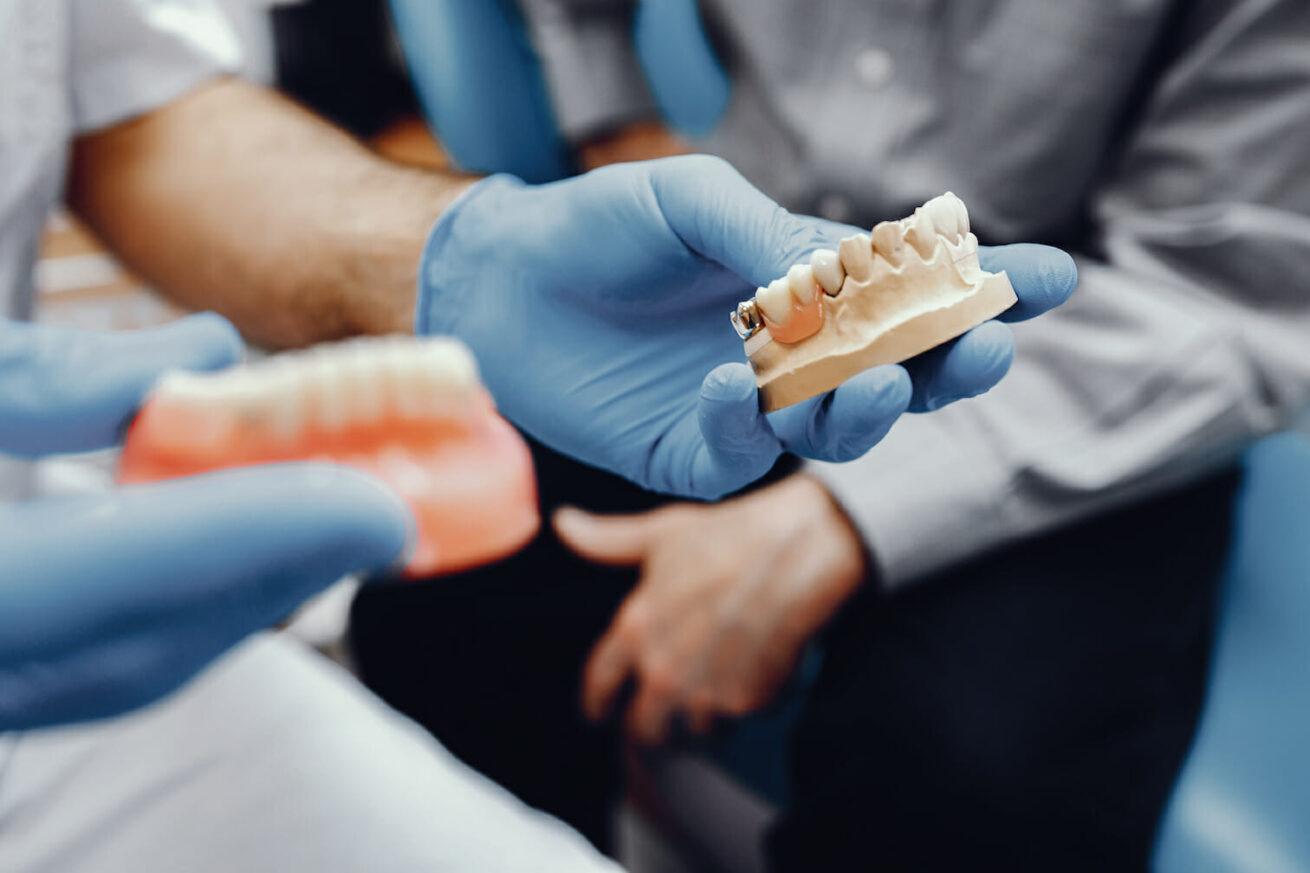Tooth loss can have multiple negative effects on our everyday lives. Losing a healthy set of teeth can result in changes in our appearance, behavior, and even how we eat. Fort Worth dentures or dental implants can help you restore your smile and feel like you again. But which one is best?
Dentures: Fast, Affordable Missing Tooth Treatment
Dentures are known for being a fast and affordable way to replace all your missing teeth at one time. You can choose from partial (specific teeth) or full (complete arch) dentures. Both are removable.
Unfortunately, there are some downsides that outweigh the “advantages” dentures have to offer. For example, a full denture exerts pressure on your soft tissues and bone, which can lead to changes in the shape of your mouth and facial profile. Partial dentures use small clasps that wrap around adjacent teeth to provide additional security, which can weaken them over time.
Both types of dentures can also make a huge impact on your speech, diet, and self-confidence.
With dental implants you have the choice to restore all of your missing teeth at once. Implants can be used to support numerous restorations, such as All-on-4, All-on-6, or a stabilized overdenture. And instead of needing a partial, a pair of implants can anchor a multi-tooth dental bridge.
When you compare dentures vs. implants, a dental implant cost tends to be the best long-term investment. Both financially and physically. Our Ft. Worth and Dallas implant dentists can help you weigh your options if you’re still unsure of the specifics related to your case.
Dental Implants Function Like Natural Teeth
Dental implants are the best option for permanent tooth replacement because of their function and longevity. Additionally, they’re non-invasive to any healthy teeth that you still have. That means nothing needs to be extracted in order to fit you with a denture.
Implants are designed to function like anatomical tooth roots, stabilizing fixed restorations such as crowns, bridges and permanent hybrid dentures. This means you won’t have to worry about an appliance shifting, rubbing, or causing slurred speech.
Some of the most notable advantages of implants are that they
- Last for your entire life
- Are permanent
- Can be used with full-arch appliances (hybrid dentures, All-on-4, etc.)
- Prevent unnecessary tooth extractions
- Appropriate for single or multiple tooth replacement
- Easy to care for
- Facilitate better bone health
- Stronger than removable dentures
- More comfortable to talk and eat with
Combining the Two: Implant Secured Dentures
Overdentures can be a cost-effective alternative to traditional implant treatment if you want to avoid a traditional “plate.” An overdenture prosthesis attaches to 2-4 implants looks like an exact replica of a traditional denture. However, it doesn’t rely on suction to hold it in place. Instead, it snaps or clips onto corresponding dental implants. This design makes it a more affordable option for anyone who isn’t ready to invest in full arch rehabilitation but still doesn’t want to wear a regular denture.
With implant-stabilized dentures you’ll never need messy adhesives or pastes. The dentures snaps onto the implants and is locked in place for the day.
Using implants to support your overdenture will help you feel more at ease sharing meals with friends, laughing around others, and smiling in public.
Hybrid Ultimate Fit Implant Dentures
A “step up” from overdentures is a hybrid, ultimate fit prosthesis. Ultimate fit dentures combine the best of both hybrid denture designs and the stability of the implants beneath them. Instead of using a plate to cover the roof of your mouth, these full-arch implants are a U-shaped restoration that’s more comparable to an extended dental bridge.
Ultimate Fit denture options and treatments like All-on-4 or All-on-6 give you complete smile reconstruction using only as few as four or six dental implants per arch. That way you can replace all of your upper or lower teeth (usually 14 at a time) while maximizing the integrity and reliability of dental implants.
These full-mouth implant systems are more comfortable to wear because they take up less space and never rub the inside of your mouth. It’s essentially like having real teeth all over again, making them far superior to a conventional removable denture.
“Do I Qualify for Dental Implants?”
Over the past several years a lot of people have been told that they don’t qualify for dental implants. So instead, they settle for dentures. But even if you’re already wearing dentures or had a dentist tell you that implants aren’t a great choice doesn’t mean you don’t qualify for more modern types of implant therapy.
One of the things that makes ARCHPOINT implants different is that your entire case is completed by a team of specialists. There’s no back-and-forth between multiple offices. And as a specialized practice, we have access to state-of-the-art equipment that might not be available in a family dental office. Such as 3D imaging and scanning. These resources allow us to digitally map out your smile reconstruction and implant placement in advance. That way we can maximize the structure of your bone and expand the options you have to consider.
A Permanent Solution for Your Smile
One of the main reasons why DFW dental implants are far superior to dentures is because your investment goes with you for the rest of your life. You can simply wake up every morning and get on with your day. There are no bulky appliances to set out on your nightstand. And if you’re meeting friends for lunch, you won’t have to worry about cutting your food up into tiny little bites.
As long as you care for your dental implants the same way you would natural teeth—which includes brushing, flossing, and regular checkups—you can keep them healthy for decades.
DFW Implants Near Me
ARCHPOINT Implant Dentistry is Fort Worth’s top choice for overdentures and hybrid dental implant systems. Our DFW implant experts offer a wide range of implant services to meet the goals and expectations of our clients. Flexible payment options are available! Are you missing all of your teeth? Dentures are a thing of the past. Call our Dallas/Ft. Worth implant experts today to learn more.
